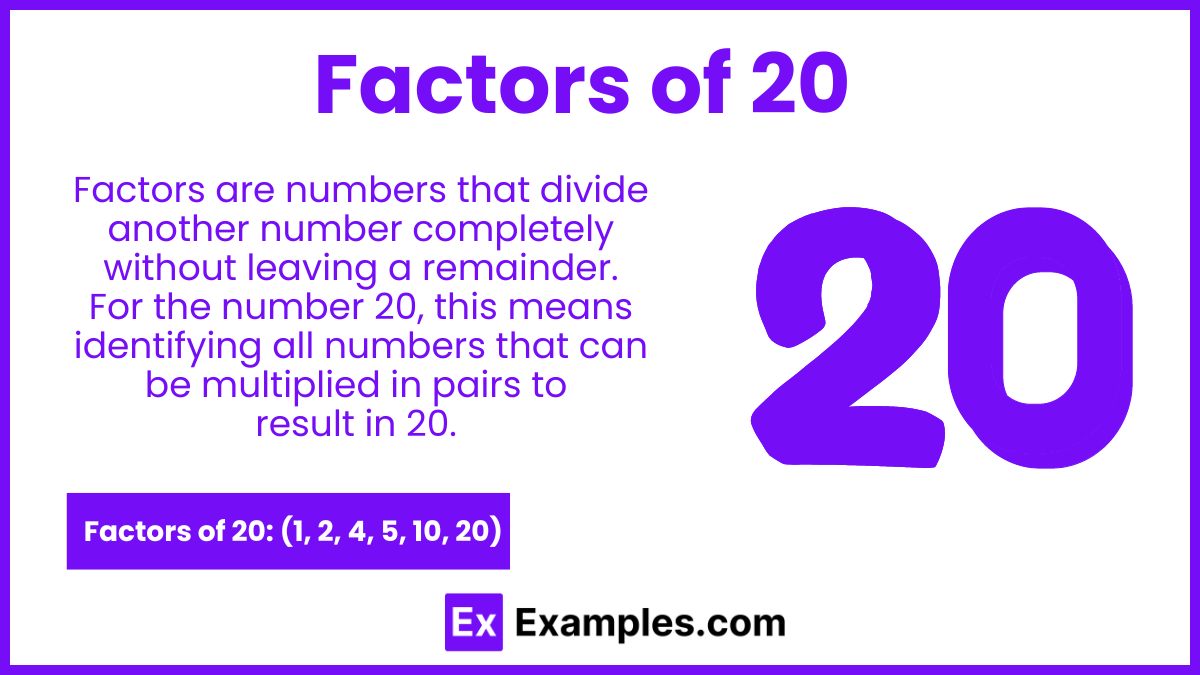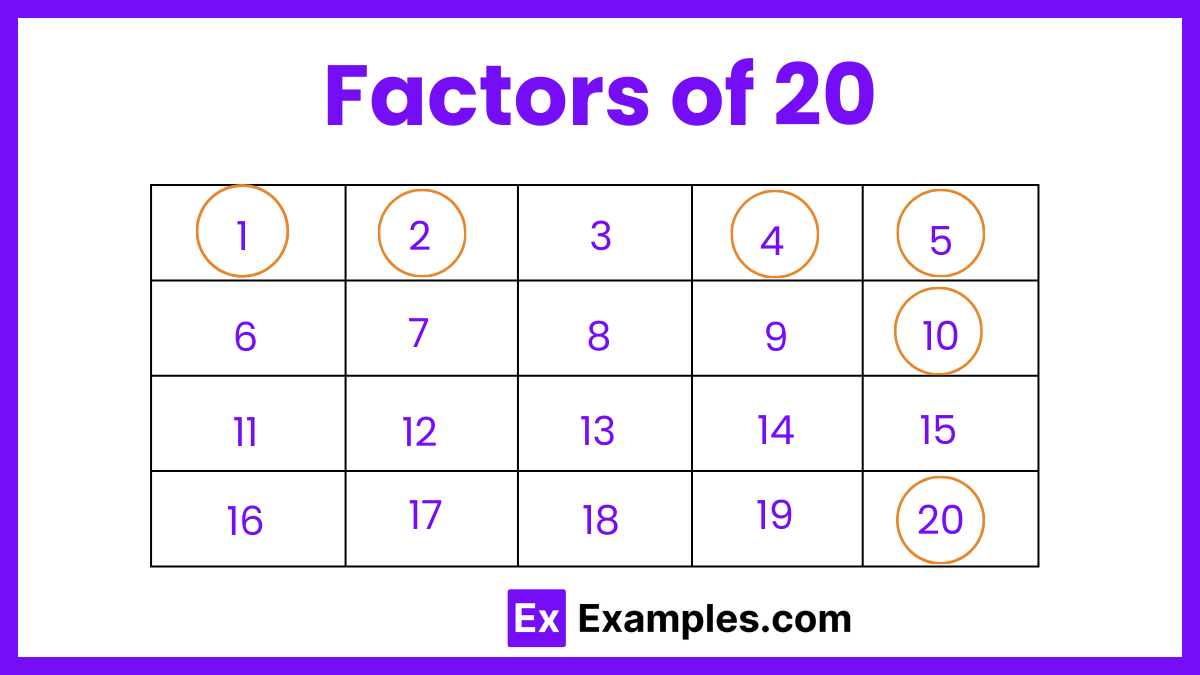What is a factor of 20?
25
18
10
5

The factors of a number is fundamental in mathematics. The number 20 is a composite number, meaning it has several factors. Factors are numbers that divide the original number exactly without leaving a remainder. For 20, these include 1, 2, 4, 5, 10, and 20. Knowing the factors of 20 is useful in various mathematical applications, such as simplifying fractions, finding common denominators, and solving algebraic equations. Exploring the factors of 20 can also provide insight into its divisibility and the relationships between numbers, enhancing your overall grasp of number theory and arithmetic.

The factors of 20 are 1, 2, 4, 5, 10, and 20. These numbers divide 20 exactly without leaving a remainder. Understanding the factors helps in simplifying fractions and solving mathematical problems. As a composite number, 20 has multiple factors, making it useful for various applications in arithmetic and number theory.
The factor pairs of 20 are as follows:
These pairs include both positive and negative factors, all resulting in the product of 20.
Calculating the prime factors of a number involves breaking it down into its basic prime number components. Prime numbers are those that have no divisors other than 1 and themselves. For composite numbers like 20, this process helps in understanding its structure and simplifying mathematical operations. Here’s how you can calculate the prime factors of 20.
Since 20 is even, it is divisible by 2. Divide 20 by 2 to get 10.
20 ÷ 2 = 10
Now take the quotient (10) and check if it is divisible by 2. Since 10 is also even, divide by 2 again.
10 ÷ 2 = 5
Now, take the new quotient (5). Check if it is divisible by 2. Since 5 is not even, it is not divisible by 2.
Move to the next smallest prime number, which is 3. 5 is not divisible by 3 either.
The next prime number is 5. Since 5 is a prime number and is divisible by itself, the process ends here.
5 ÷ 5 = 1
The prime factors of 20 are the prime numbers you used in the division process: 2, 2, and 5.
Therefore, the prime factorization of 20 is 2 × 2 × 5 or 22×5.
The factors of a number is crucial for various mathematical applications. The number 20 is a composite number with multiple factors. These factors can be useful in simplifying fractions, solving equations, and understanding number theory. Here are some tips to help you work with the factors of 20 effectively.
The sum of the factors of 20 is 1 + 2 + 4 + 5 + 10 + 20 = 42.
The prime factorization of 20 is written as 22×5
The greatest common factor of 20 and 30 is 10, as 10 is the largest number that divides both 20 and 30 exactly.
The product of all the factors of 20 (1, 2, 4, 5, 10, 20) is 1 × 2 × 4 × 5 × 10 × 20 = 8,000.
Yes, 5 is a factor of 20. When 20 is divided by 5, it results in an integer (20 ÷ 5 = 4), meaning 5 divides 20 exactly without leaving a remainder.
Knowing the factors of 20 is useful for simplifying fractions, solving equations, finding common denominators, and understanding properties of numbers in mathematics.
Text prompt
Add Tone
10 Examples of Public speaking
20 Examples of Gas lighting
What is a factor of 20?
25
18
10
5
Which of the following is not a factor of 20?
4
8
15
5
How many factors does the number 20 have?
4
5
6
7
What is the smallest factor of 20?
1
2
3
4
Which number is a common factor of both 20 and 25?
2
5
10
15
If 4 is a factor of a number, which of the following numbers could be that number?
15
18
20
22
What is the greatest factor of 20?
10
15
20
30
Which of the following is not a multiple of 20?
40
60
80
25
Which factor of 20 is also a factor of 30?
2
3
46
A) 2
6
Which of the following numbers is a factor of 20 and 40?
3
5
7
9
Before you leave, take our quick quiz to enhance your learning!

